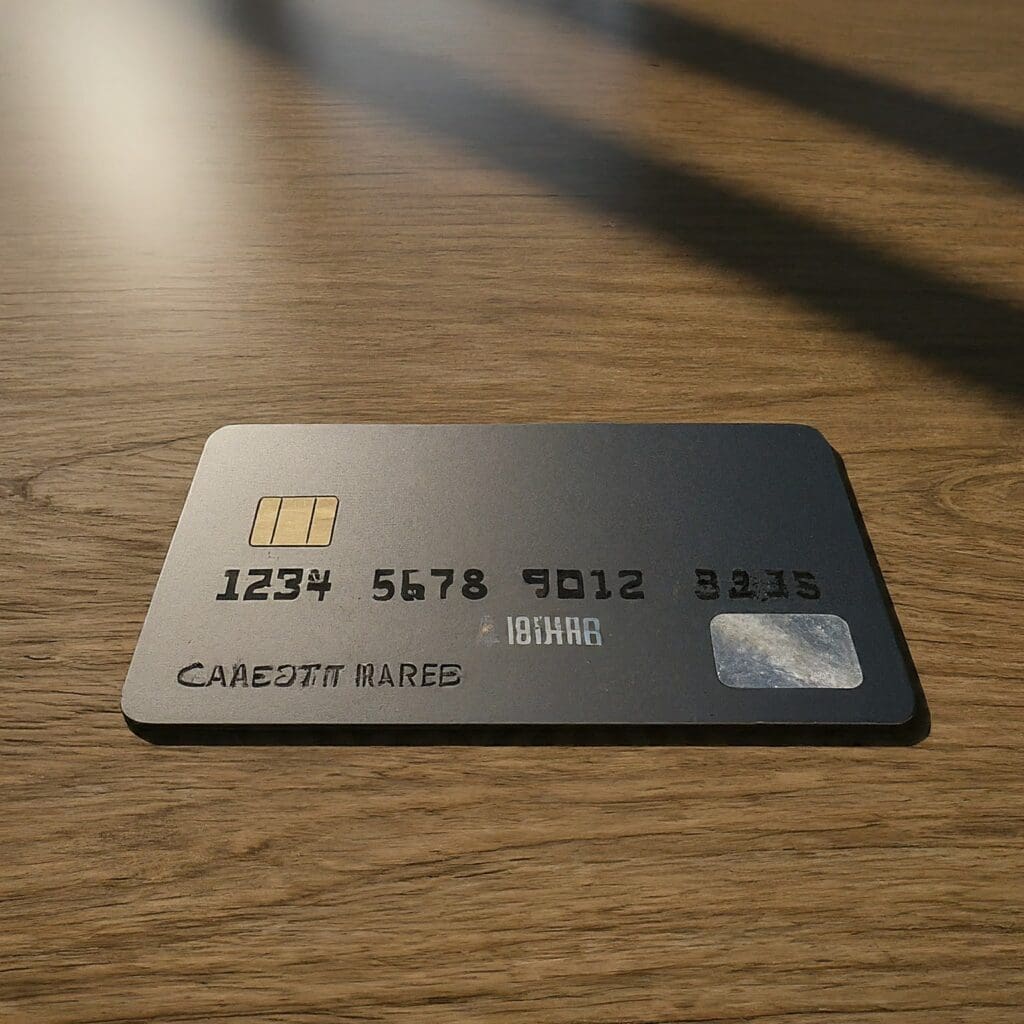Introduction

Credit cards are a convenient financial tool, offering rewards programs, purchase protection, and the ability to build credit.
However, if not managed responsibly, credit card debt can quickly spiral out of control.
In Nigeria, with high-interest rates, even small balances can become a significant burden.
This comprehensive guide empowers you to tackle credit card debt strategically. We’ll delve into best practices, explore effective debt repayment methods, and highlight common pitfalls to avoid.
Whether you’re just starting your debt-free journey or seeking fresh strategies, this guide equips you with the knowledge and tools to achieve financial control.
Understanding Credit Card Debt in Nigeria
According to a 2023 EFInA (Enhancing Financial Innovation & Access) report, credit card penetration in Nigeria is on the rise. This trend highlights the growing importance of financial literacy regarding credit card use.
Here’s a breakdown of key factors to consider when navigating credit cards in Nigeria:
- High-Interest Rates: Nigerian credit card interest rates can range from 25% to 35% annually, significantly higher than rates in some developed countries. This emphasizes the importance of paying your balance in full each month to avoid accruing substantial interest charges.
- Minimum Payment Trap: The minimum payment on your credit card statement is typically a small portion of your total balance. Paying only the minimum can lead to accruing significant interest and extending your debt repayment period for years.
Best Practices for Managing Credit Card Debt

1. Track Your Spending:
The first step to conquering debt is gaining a clear understanding of your spending habits. Download your credit card statements and categorize your expenses. Many banks in Nigeria offer mobile apps that allow you to track spending in real-time.
2. Create a Budget:
A budget is a roadmap to financial freedom. List your monthly income from all sources and categorize your essential expenses like rent, utilities, groceries, and transportation. Allocate funds for debt repayment and factor in savings goals for emergencies. There are several budgeting apps available for Nigerians, or you can create a simple spreadsheet.
3. Prioritize Debt Repayment:
Focus your efforts on paying off high-interest credit card debt first. This strategy saves you money on interest charges in the long run. There are two popular methods for prioritizing debt repayment:
- Avalanche Method: Focus on paying off the debt with the highest interest rate first, regardless of the balance amount. This minimizes the total interest you pay.
- Debt Snowball Method: Prioritize paying off the debt with the smallest balance first, regardless of interest rate. This can provide a sense of accomplishment early on and motivate you to continue your debt-free journey.
4. Pay More Than the Minimum Payment:
While making minimum payments is crucial to avoid late fees and damaging your credit score, it won’t get you out of debt quickly. Every additional naira you pay towards your balance reduces the principal amount and saves you on interest.
5. Explore Debt Consolidation:
Debt consolidation involves combining multiple debts with high-interest rates into a single loan with a lower interest rate. This simplifies your repayment process and potentially saves money. Explore debt consolidation options offered by Nigerian banks, but be cautious of any fees associated with the loan.
6. Negotiate with Your Credit Card Company:
If you’re struggling to make payments, contact your credit card issuer and explain your situation. They may be willing to lower your interest rate or offer a temporary hardship program.
7. Increase Your Income:
Consider ways to increase your income to accelerate debt repayment. Explore freelance work, a side hustle, or negotiate a raise at your current job. Every additional naira earned can be directed towards your debt.
8. Avoid Impulse Purchases and New Debt:
Resist the temptation to use your credit card for impulse purchases. Stick to your budget and prioritize paying off existing debt. Consider alternative payment methods like debit cards or cash to avoid accumulating further debt.
Common Pitfalls to Avoid
1. Minimum Payment Trap:
As mentioned earlier, paying only the minimum payment keeps you in debt for a longer period and incurs substantial interest charges.
2. Using Your Credit Card for Emergencies:
Credit cards are not meant for emergencies. High-interest rates make them a costly solution for unexpected expenses. Building an emergency fund is crucial to cover unexpected costs without resorting to credit cards.
3. Maxing Out Your Credit Limit:
A maxed-out credit card negatively impacts your credit utilization ratio, a significant factor in determining your credit score. Aim to keep your credit utilization below 30% for a healthy credit score. This means using only a small portion of your available credit limit.
4. Ignoring the Problem:
Ignoring your credit card debt won’t make it disappear. The earlier you address the issue, the easier it will be to manage.
5. Not Seeking Help:
Financial advisors and credit counseling services can offer guidance and support in managing your debt. Don’t hesitate to seek professional help if you’re feeling overwhelmed.
Additional Tips for Nigerians
- Explore Informal Savings Groups: Nigerians have a strong tradition of informal savings groups like “Ajo” or “Esusu.” These groups can provide a support system for saving money and achieving financial goals.
- Utilize Reward Programs: Many Nigerian credit cards offer reward programs for using your card. However, ensure the rewards outweigh the interest charges you might incur. Consider using a debit card for everyday purchases to avoid accumulating debt while still benefiting from loyalty programs offered by some debit cards.
Conclusion
Conquering credit card debt requires discipline, strategic planning, and a commitment to changing your spending habits. By following the best practices outlined above and avoiding common pitfalls, you can achieve financial freedom and a healthier relationship with credit.
Remember, the journey to becoming debt-free is a marathon, not a sprint. Celebrate your milestones, stay motivated, and don’t be afraid to seek help when needed.
With dedication and the right approach, you can take control of your finances and build a brighter financial future.
Additional Resources
- Enhancing Financial Innovation & Access (EFInA)
- Central Bank of Nigeria (CBN)
- National Financial Literacy and Education Strategy
Disclaimer: The information contained in this article is for general informational purposes only and should not be construed as financial advice. Please consult with a qualified financial professional before making any credit-related decisions.



